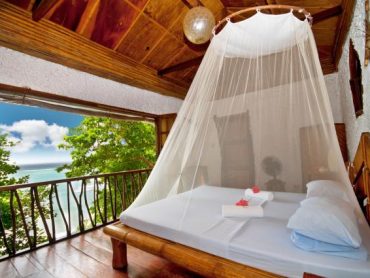A Survey Of How Early Career Business Travellers Select Their Hotels
A recently completed survey (Summer 2011) of hotel purchase behavior indicates some potentially troubling news for hoteliers. In particular, this research reveals a significant weakness in hotel brand recognition.
About the Survey
When I started my business career, travel arrangements were regimented. All requests went through the office travel department – our own in-house travel agency. There were few choices given to the employee. But it didn’t matter, I loved to travel. I looked forward to the ad agency visit to New York City, the tradeshow in Orlando, or the plant tour in Michigan. My boss had some pull, and we enjoyed staying in such grand properties as the Waldorf Astoria, the Hay Adams and the Drake. Loyalty programs, the Internet, and, of course, OTAs did not exist.
The world has changed in the past thirty years. Many companies have disbanded their in-house travel arrangements; recognizing the efficiencies of the Internet coupled with a desire to keep costs to a minimum. Given security, travel itself has become more of a chore. As well, the myriad of hotel brands offered to the traveler is sizably greater. The influence of loyalty programs for hotels, airlines, and online booking systems now form critical factors in how travel is both arranged and consumed.
To my knowledge, not much research has been done, or perhaps published, on the young business traveler – those just starting in their business careers. Just as my early experiences in travel (and love of great hotels) were formed by my business trips working with Procter & Gamble and Pepsico, I was wondering what the travel experience was like for such modern day ‘newbies.’ Importantly, as habits are formed in our early years, I wanted to see how these travelers were planning their accommodation purchases.
One hundred (useable) one-on-one interviews were conducting in the summer of 2011, split almost equally between male and female respondents and between the ages of 24 and 34. Moreover, respondents were screened for those who had traveled for their business by air at least twice within the past twelve months. Those surveyed lived in Boston, Chicago, Los Angeles, New York City and Toronto, all having worked in a company with at least 25 employees.
Note to reader: With a survey size of only 100, these results require verification through larger scale research programs, and as such, should be considered directional, rather than statistically significant. Never-the-less, the results require careful examination.
Survey Questions and Results
How would you best describe your business travel experiences (pick one of these that best describes your feelings):
-
- I love to travel and enjoy new surroundings and experiences: 77%
- Business travel creates even more work for me, and is an inconvenience: 4%
- Travel is a necessity of my job/career, I have no choice: 12%
- No response: 7%
Does your employer have written policies that govern travel by air and hotel usage?
- Yes: 60%
- No: 12%
- Not sure: 28%
When traveling on business overnight by air, is this travel primarily:
- Domestic: 88%
- International*: 12%
(Cross border Canada-US considered as International travel)
For these trips, who makes the majority of your business travel arrangements?
- Reservations done by self: 73%
- Travel agent, office travel coordinator, other: 27%
For those who make travel arrangements themselves, what is the primary method?
- Internet, using an online travel agency such as Expedia, Travelocity, Orbitz, etc.: 68%
- Internet, booking direct with hotels and airlines on their respective web sites: 26%
- Via telephone direct to hotels or airlines: 6%
When you travel by air, how often has this travel required an overnight hotel stay?
- 1 to 3 times in the past 12 months: 74%
- 4 or more times in the past 12 months: 26%
For those who can choose, when traveling on business, what are the criteria you use for selecting your hotel accommodation? (Rated on a scale of zero to ten, where zero is not at all important, ten is most critical.)
- Location relative to destination: 8.1
- Cost of room per night: 7.6
- Free WiFi or fee high-speed internet: 7.0
- Free breakfast: 4.0
- Room type (suite, bed type): 3.5
- Airline loyalty program points: 3.2
- Hotel brand: 2.5
- Coffee maker in room: 1.5
- Hotel loyalty program: 0.2
Name three major hotel brands (unaided). Top 5 results were:
- Hilton (or Hilton brand variations): 83%
- Marriott (or Marriott brand variations): 76%
- Sheraton or Sheraton Four Points: 65%
- Expedia: 54%
- Holiday Inn: 53%
Have you ever heard of (aided, yes responses)?
- Relais & Chateaux: 11%
- Preferred Hotels and Resorts Worldwide: 4%
- Leading Hotels of the World: 4%
- Historic Hotels of America: 0%
- Summit Hotels: 0%
- Small Luxury Hotels: 0%
How many employees does your company have (your best guess)?
- 25 – 100: 24%
- 101-1,000: 39%
- More than 1,000: 37%
Do you belong to at least one airline frequent flyer/loyalty program?
- Yes: 64%
- No: 36%
Do you belong to at least one hotel frequent guest/loyalty program?
- Yes: 5%
- No: 95%
Conclusions
While this is only a small-scale snapshot, and is by no means statistically significant, the hotel industry appears to have some work to do.
Despite the economy, there is still some very strong enthusiasm for travel. As expected travel arrangements focus on efficiency and cost, with most of those surveyed going to the OTAs to make their arrangements.
Hotel brands were not really part of their accommodation selection criteria, rating scarily close to the bottom. Perhaps what is most revealing was a response to a question on major hotel brand names, where Expedia beat out Holiday Inn. Since when is Expedia a hotel brand name? Not surprisingly, the survey also indicated a lack of awareness in the hotel affiliation programs such as Preferred or Leading. Hotel loyalty programs are bordering on non-existent.
Indicated Actions
This survey demonstrates a further impact of the OTAs: the decline of brand differentiation amongst the youthful business traveler. Corporate hotel marketers should conduct their own research to validate these findings, and propose ways to penetrate the mindshare of this segment, wholly independent of the OTAs and potentially utilizing their hotel loyalty programs as a (yet untouched) tool. Remember: these customers are the future of our industry.




